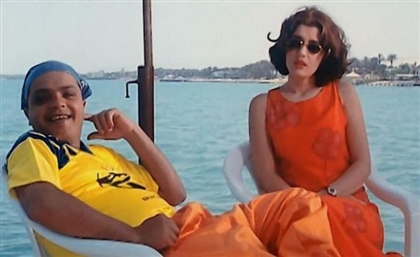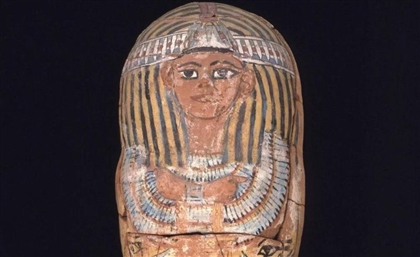What Is Love? Hepta: The Movie And The Novella
You have seen the movie and loved it; but perhaps you might not feel the same about the book. Resident word-nerd and lit-lover Sanabel al-Najjar compares the two. Spoiler alert, obviously.

Regardless of the reason that prompted the larger-than-life figure that is William Shakespeare to say in one of his sonnets that “Love is not love, which alters when it alteration finds, or bends with the remover to remove: O no; it is an ever-fixed mark, that looks on tempests, and is never shaken,” it still remains that this statement comes as an almost translucent reflection of the way humans have always viewed love within the forms of human expression. That is, love never changes or bends to circumstance, and instead is an ‘ever-mixed mark’.
This idealisation of one of the most discussed and ‘celebrated’ human emotions provides room for the almost fatal waning of reality and its nuances in the face of the giant and absolutely perfect image of love that most of us carry in our heads. Love never changes; love lasts forever; love is blind (forever); our object of love is always beautiful and always will be; love is good and does no harm; love is the reward we get for all the struggles we’ve been going through since the day we were born; love is the cure and the answer; love is everlasting magic; and, of course, love is ultimate truth, the answer for and to everything.
Though many among us are willing to fight tooth and nail in belief of this ‘image’, they should also bear in mind a few simple truths standing just adjacent to the ones aforementioned. Because love is also trying to love the other person when you feel you could barely love your own life; love is to accept that the subject of our love might be arrogant, selfish, controlling, pretentious, neurotic; love is to accept their body after the weight gain, after birthing children, or after the surgery; love is to not have feelings or long for someone else; love is to see the less flattering sides of the loved one and still love them; love is to cry for hours in bed; to be cheated on; to feel your heart quietening in your chest; to experience all the myriad hues of pain. Love is to suffer.
And so, love is – perhaps – manmade.
In a rare instance – especially in an Arab society – a movie has come out challenging the ideal image of love, in which various readings of the concept are channeled through a raw presentation of life. The movie, Hepta, based on a book by Mohammad Sadeq of the same title, follows certain periods in the lives of four characters with a close-up on their romantic relationships and their failures, only to reveal at the end that the four characters were actually one person during different points in his life.
To answer the question that many have been asking about the movie versus the book, the endings are actually not similar. While the movie also reveals near the end that all the characters were in fact one, the director shows us in the very last shot that the professor himself was that character. However, in the book, the character turned out to be one of the students attending the lecture. And though the book wraps up with a joyful ending in which the main character – unnamed throughout the entire book – is described lamely walking back to his loving wife, the main character in the film, Osama, exits the hall with his daughter and without a romantic companion of any sort. In fact, perhaps the movie’s ending is actually more genuine to the book itself as the professor states in the last pages of the book that it is better to give people a tragic story so it can better stick in their heads so they can better learn from it.
Though the plot and the narration in the book are truly impressive, in which chopped segments of the story perfectly interweave together with admirable flow, perhaps one cannot make the same statement about the depth of language used in the book. The unembellished colloquial Egyptian dialect used in the dialogue provide the text with a more authentic feel and realness of the characters. However, one can argue that this has simultaneously compromised the quality of the otherwise great narration. The over dependence on colloquial language in the interaction of the characters despite granting them authenticity has somewhat deprived them of their depth as characters and representations of human beings. When all we know of a fictional character is whatever the narrator – sometimes forcefully- chooses to say, and without delving into their souls in literary descriptions, the characters end up turning into superficial caricatures of fictional characters.
Yet perhaps this is too harsh of a judgement, where if one were is to just focus on the novella without relative comparison, then a different reading might be made. At the same time, it is easy to notice while reading the book how simple the language is and how the use of clichéd terms in the movie actually undermines the linguistic structure as a whole. When at one point the character is described as “melting even more every day in his love,” the reader instantly wonders how the movie would have turned out had the description been punchier and the language a little less simple.
And maybe precisely because the novella is filled with spontaneous funny moments evoked by a character (B - the 17-year-old) who keeps making funny comments about himself and life (and who, on his way to surgery, noticed that his surgery robe was actually exposing more than what is appropriate to his lady friends,) it immediately feels like a movie. The effect is further augmented since those moments are coupled with the abundance of easy-flowing dialogue. And so, the job of the screenwriter was probably not that difficult, especially because some character dialogues were copied as is and iterated in the movie intact by the actors.
And so, in this perhaps rare case (especially for bookworms), the movie comes as a more tragic and, yes, more moving production than the literary work on which it is actually based. Though completely missing an important character originally present in the novella (cancer patient Sara who constantly consoles character B), the movie production itself reflects a better version of what the novella could have been. The excellent, authentic acting, the uninterrupted flow of shots and the interweaving of sounds and music, and the phenomenal prominence of certain colours to depict character moods and plots in the movie, coupled with the more tragic ending that the screenwriter opts for, makes for a one-of-a-kind Arabic movie that moves beyond the readily-cast happy endings, cake-faced actresses with tattooed eyebrows, and the all-too-familiar ‘that was an ok movie’ viewer response.
Also, the movie does not make insinuations about the main character’s mother who had fled with her lover from a remote village in Egypt to the States, where she conceived her son – something originally found in the book. The movie, which also excludes inappropriate scenes or language, seems to have been tailored to the comfort of the average Arab, where sexual matters are very lightly hinted at without visuals or explicit content. Observing people’s reactions in the movie, between wholehearted laughter and a little bit of tearing up heard around me in the theatre, and my fiancé’s joking about which Hepta state we’re both in at this point are only small examples of how the movie was able to reach the hearts of those who watched it – something that the book itself –at least in my personal opinion – failed to accomplish.
Regardless of of the reason that prompted the larger-than-love figure that is Charles Bukowski to say in one of his most brilliant alcohol-influenced poems that “Love is a dog from hell,” it still remains that just as love hurts, disappoints, and fails, it also cures at least some of what was broken in us along the way. Love is warm company when we are aching alone in bed, and is the heart and essence of almost every masterpiece articulation of human pain and beauty. And that in itself should always be enough for every one of us.
Trending This Week
-
May 01, 2024
























